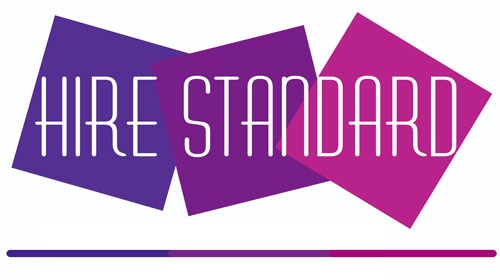Tips for a More Successful Interview
Job seekers often relay stories of endless interviews that end in rejection, or — worse yet– no decision from the employer. Here are a few quick tips from Hire Standard to set yourself apart from your competitors and increase your chances of getting an offer.
DO YOUR HOMEWORK Review the job posting carefully and be brutally honest with yourself: are you the best possible candidate for the position, or is it just a job you WANT? Research the company by looking at their site and reading some recent online postings about their business, industry, government agency, and issues that affect them. Make a list of items that link you to the company through your performance; these may be things you forget to mention in the interview unless you rehearse them.
PRINT OR SAVE THE CONTACT’S INFORMATION Everyone knows you should be on time for the interview. But in these days of Metro delays, traffic snarls, and GPS confusion, you could unexpectedly run a bit late. Make sure to contact the interviewer directly — as soon as you think you might be late…not after the interview should have started. Be brief with your explanation. A simple, “I apologize for the Metro delay and should be there in five minutes” is better than a lengthy explanation.
You’ll also need the contact person’s information for your post-interview thank you note.
AND, ABOUT THE THANK YOU NOTE: A timely email thank you right after the interview is more effective than a hand-written, mailed note. Make sure to proofread and spell check your email and include your contact information along with the email. Indicate your interest, reiterate why you are a good candidate based on what you learned in today’s interview, and confirm your availability to meet for a second interview (even if they have not asked you to do so).
UPDATE YOUR REFERENCE LIST Make sure to have a printed list of supervisory references, and check their phone numbers and email addresses frequently. Nothing can derail your candidacy more quickly than being unable to reach your references!
Assume that people have moved, changed their email address and cell phone number or direct dial and be sure your list is up to date. Identify the person’s title and the company where you worked with the in addition to their phone number and email address. Print the list as a separate document, attach to your resume, and type your name and contact information at the top of the reference list before affixing it to your resume. Ask the interviewer if they have questions about your relationships with any of the references and whether they would like additional references.
BE PREPARED TO HANDLE THE SALARY QUESTION Come on– you know this question is coming! Instead of hiding from it, spend time honing your response and practice it in front of a mirror until it is natural for you. Gather knowledge about what the job should pay; there are plenty of internet sites with salary information. Make sure your last salary is in line so you can offer that information to the interviewer and that it is accurate; you can be sure they will check it if interested in you. When asked what salary you are looking for, be comfortable saying that the job opportunity and company are your interest and that you are flexible on salary.
DO NOT ASK ABOUT THE COMPANY’S BENEFITS — EVEN IF GIVEN THE OPPORTUNITY TO ASK QUESTIONS Save this until the time they offer you the job. If the interviewer has not presented the benefits to you during the interview, you can find out at offer time and weigh the information at that time.
DO HAVE SOME QUESTIONS READY BEFORE THE INTERVIEW You can inquire about challenges facing the company, about their culture, examples of successful employees, the goals of the department, etc. There are so many “legitimate” questions and there will never be enough time, so edit yours. We suggest formulating no more than three questions for the interviewer.
RECORD YOUR INTERVIEW NOTES WHEN YOU GET HOME This habit will be invaluable, particularly if you are doing multiple interviews over a short period of time.
DO ASK THE COMPANY’S TIMELINE FOR DECISION MAKING AND FOLLOW UP BY EMAIL.
FINALLY, ASK FOR FEEDBACK — PARTICULARLY IF YOU ARE REJECTED This takes guts, but it probably our most important tip. Asking the contact to clarify what you could do better, or how your qualifications did not match their needs can be a very powerful tool. Don’t be afraid of their comments. Instead, look at how you can benefit from the time and money you spent on that interview to bring you one step closer to your dream job.

